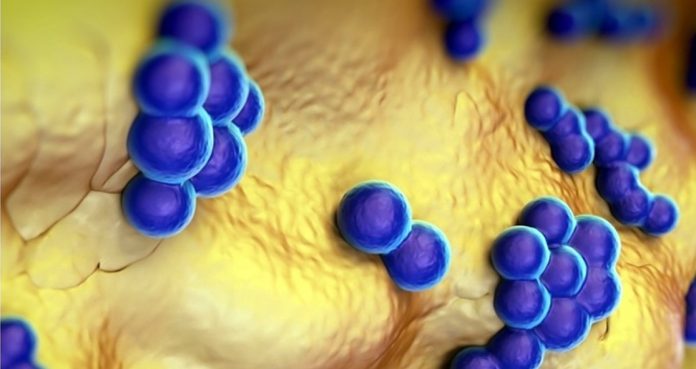Researchers are looking out for new molecules that can fight pathogenic bacteria because current antibiotics dwindle in efficacy against multi-drug resistant bacteria. A team of researchers has now been able to identify a slimy fish mucus as a potential source of antibiotics, which could fight resistant bacterial infections such as Methicillin-Resistant Staphylococcus Aureus (MRSA).
The findings of the study were presented at the American Chemical Society (ACS) Spring 2019 National Meeting & Exposition.
The team’s principal investigator Sandra Loesgen from the Oregon State University said, “We believe the microbes in the mucus add chemistry to the antiseptic power of the mucus and that new bioactive compounds might be discovered from the fish microbiome. For us, any microbe in the marine environment that could provide a new compound is worth exploring.”
She noted that there are several chemical reagents in the human microbiota as well as on marine life, suggesting that there is a mucus coating on the surface of fish, which is rich in microbes.
The thick viscous slimy substance can protect the fish from microbes and viral attacks from its environment. Fish slime is capable of trapping pathogenic bacteria before they can penetrate their skin. It is also found to be rich in complex sugars known as polysaccharides and complex proteins known as peptides, which have antibacterial activity, explained Loesgen.
“Fish mucus is really interesting because the environment the fish live in is complex. They are in contact with their environment all the time with many pathogenic viruses,” said Molly Austin, a chemistry student who was part of the study.
Erin (Misty) Paig-Tran, the co-author of the study from California State University, Fullerton, provided the team of researchers with the young fish mucus that was obtained from the Southern California coast.
The team noticed that the fish mucus was more abundant in young fish because they need it to fight off infections. The team also found that the mucus has the ability to fight off nearly 47 different strains of pathogenic bacteria.
The researchers were surprised to see that five extracts of the fish slime were able to fight off MRSA, while three extracts to fight off a fungal infection called Candida albicans. They are also looking for extracts that could fight gram-negative bacteria (Pseudomonas aeruginosa), which is a bit difficult to treat.
The team added that their study might help reduce the use of antibiotics in fish farming as well. “We don’t even know what a healthy microbiome is,” said Loesgen. She said, as of now, they are not clear about the fish slime’s natural antimicrobial picture. The team does not know if the fish extracts they studied were normally found. Loesgen explains that the team’s next step would be to understand that normal microbiome over the fish surface.





















